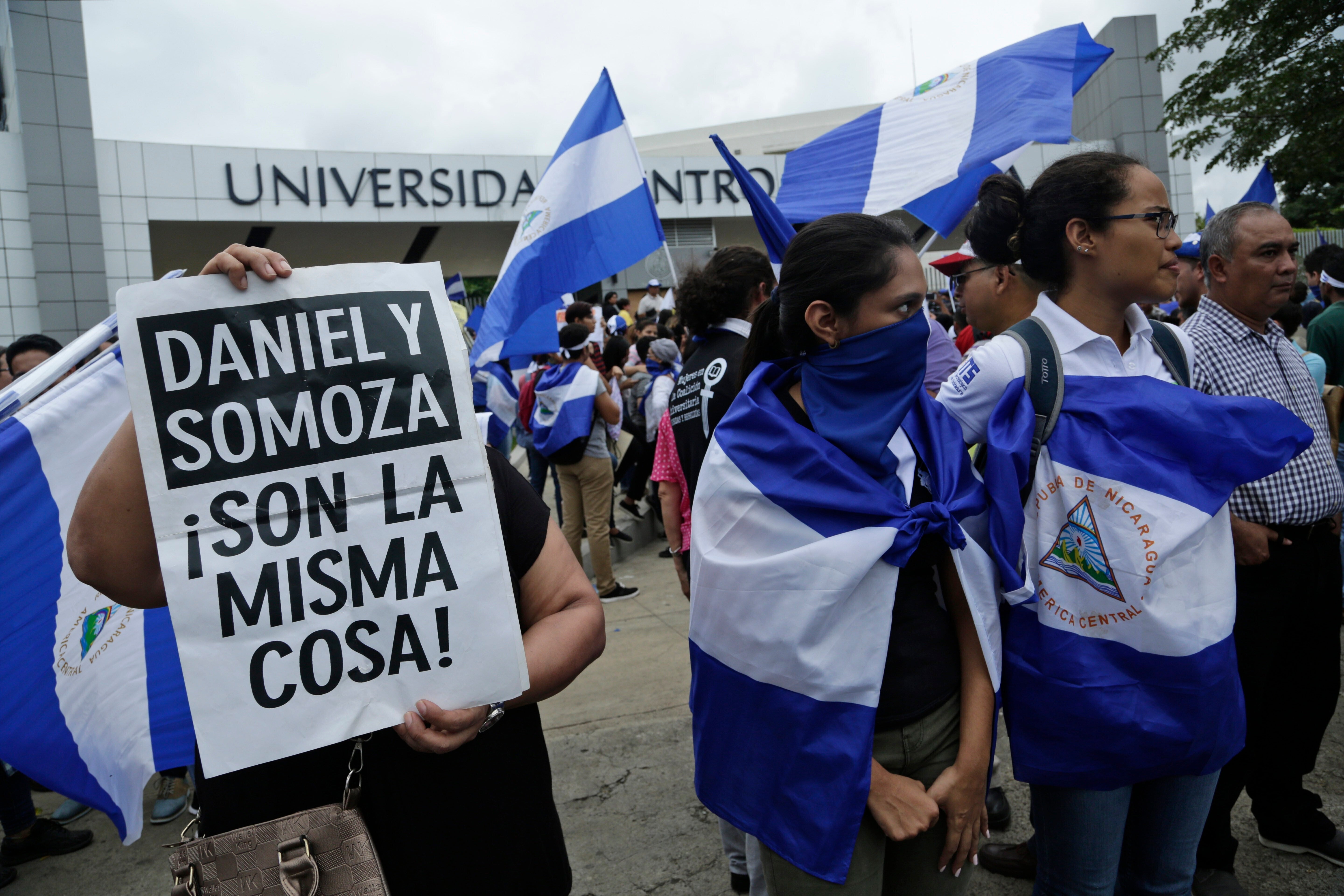Nicaraguan government seizes highly regarded university from Jesuits
The Jesuits say Nicaragua's government has confiscated the University of Central America in Nicaragua, which is one of the region’s most highly regarded colleges

Your support helps us to tell the story
From reproductive rights to climate change to Big Tech, The Independent is on the ground when the story is developing. Whether it's investigating the financials of Elon Musk's pro-Trump PAC or producing our latest documentary, 'The A Word', which shines a light on the American women fighting for reproductive rights, we know how important it is to parse out the facts from the messaging.
At such a critical moment in US history, we need reporters on the ground. Your donation allows us to keep sending journalists to speak to both sides of the story.
The Independent is trusted by Americans across the entire political spectrum. And unlike many other quality news outlets, we choose not to lock Americans out of our reporting and analysis with paywalls. We believe quality journalism should be available to everyone, paid for by those who can afford it.
Your support makes all the difference.The Jesuits announced Wednesday that Nicaragua's government has confiscated the University of Central America in Nicaragua, one of the region's most highly regarded colleges.
It was the latest in a series of expulsions, closures and confiscations by the regime of President Daniel Ortega targeting the Roman Catholic Church and opposition figures.
The order, known as the Society of Jesus, said the government seized all the university’s property, buildings and bank accounts.
It quoted the government as claiming the university “operated as a center of terrorism.” The Jesuits say the accusation is unfounded.
“This is a government policy that systematically violates human rights and appears to be aimed at consolidating a totalitarian state,” the Society of Jesus of Central America said in a statement.
It was a serious blow to the country's academic sector.
“With this confiscation, the Ortega government has buried the freedom of thought in Nicaragua," said María Asunción Moreno, who was a professor at the university until she was forced into exile in 2021.
In April, the Vatican closed its embassy in Nicaragua after the country’s government proposed suspending diplomatic relations.
Two congregations of nuns, including from the Missionaries of Charity order founded by Mother Teresa, were expelled from Nicaragua last year.
The expulsions, closures and confiscations have not just targeted the church. Nicaragua has outlawed or closed more than 3,000 civic groups and non-governmental organizations.
In May, the government ordered the Nicaraguan Red Cross shut down, accusing it of “attacks on peace and stability” during antigovernment demonstrations in 2018. The local Red Cross says it just helped treat injured protesters during the protests.
In June, the government confiscated properties belonging to 222 opposition figures who were forced into exile in February after being imprisoned by Ortega's regime.
Those taken from prison and forced aboard a flight to the United States on Feb. 9 included seven presidential hopefuls barred from running in the 2021 election, lawyers, rights activists, journalists and former members of the Sandinista guerrilla movement.
Thousands have fled into exile since Nicaraguan security forces violently put down mass antigovernment protests in 2018. Ortega says the protests were an attempted coup with foreign backing, aiming for his overthrow.